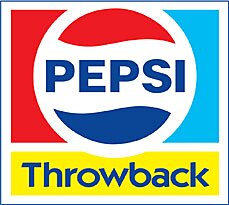This weekend while watching a football game with a friend, I saw a commercial for Pepsi “Throwback.” This is a new product containing real sugar instead of high-fructose corn syrup. My friend was incredulous when I explained that soft drinks manufactured for sale domestically generally don’t contain sugar because government protection of the U.S. sugar industry from imports make its use cost-prohibitive.
I am intrigued that Pepsi would market a sugar-based product. In perusing the Internet for news about it, I found countless stories applauding the product but blaming Pepsi and Coke for continuing to use inferior-tasting high-fructose corn syrup. For example, Pepsi Throwback’s Wikipedia page states that soft drink manufacturers switched to high-fructose corn syrup decades ago because of rising sugar prices, but it doesn’t mention that government policy was behind the price increases.
A Cato essay on agricultural regulations and trade barriers explains the government’s sugar racket and its destructive effects. Here are the key points:
- The federal government guarantees a minimum price for sugar in the domestic market by maintaining a system of preferential loan agreements, domestic marketing quotas, and import barriers.
- USDA data show that U.S. sugar prices have been more than twice world market prices.
- The Government Accountability Office estimates that U.S. sugar policies cost American consumers about $1.9 billion annually.
- U.S. food industries that buy sugar are harmed by current sugar policies. The employment in U.S. sugar growing is 61,000, which compares to employment in U.S. businesses that use sugar of 988,000.
- According to a U.S. Department of Commerce report, for each sugar growing and harvesting job saved through high U.S. sugar prices, nearly three confectionary manufacturing jobs are lost.
- Numerous U.S. food manufacturers have relocated to Canada where sugar prices are less than half of U.S. prices and to Mexico where prices are two-thirds of U.S. levels.
Chicago has been particularly hard hit, with many candy companies moving production abroad. One might think that our president, a Chicagoan, would be willing to take on the powerful domestic sugar lobby. But as Dan Griswold discussed in October, Obama’s USDA ignored a plea from domestic sugar-using industries and kept quotas at their current restrictive level.
What about high-fructose corn syrup? Government policy artificially increases the price of sugar, but its corn subsidies artificially reduce the price of corn, which helps make high-fructose corn syrup more cost-effective in products like soft drinks. Major high-fructose corn syrup manufacturers, such as Archer Daniels Midland, benefit from federal programs and they spend lots of money lobbying policymakers to keep them going.
In his classic 1995 Cato policy analysis, “Archer Daniels Midland: A Case Study in Corporate Welfare,” James Bovard recounts ADM’s long-standing influence behind the government’s sugar racket:
Although ADM does not directly produce sugar, Congress and the USDA have created a price umbrella under which ADM’s production of high-fructose corn syrup – a sugar syrup – has become immensely profitable. ADM got into corn fructose production very heavily around 1974, just as sugar prices peaked on world markets. After ADM invested heavily to increase its capacity to produce high-fructose corn syrup ninefold, sugar prices plummeted from 65 cents to 8 cents per pound.
[ADM Chairman Dwayne] Andreas told Business Week in 1976, “If it was a mistake, I’d say it was my mistake.” Business Week noted, “One industry source suggests that ‘Dwayne looks at this as sort of a waiting game, basing his unflappability on the predicted passage of a new sugar bill.’ Such a bill is expected to provide an ‘umbrella’ – that is, to put supports under sugar at a level where high-fructose corn syrup will be at least reasonably profitable. Andreas contributed heavily to the 1968 and 1972 campaigns of Humphrey, Jackson and Nixon. With both parties covered, ADM may reasonably anticipate some legislative help.” That help came in the form of a new sugar bill in 1981.
For ADM, cheaper inputs (corn) plus a more expensive substitute (sugar) equals nice profits at U.S. taxpayer and consumer expense.
Pepsi Throwback will only be available for U.S. consumers to enjoy until February 22nd. After that, Americans looking for Pepsi or Coke with real sugar in it will have to go to Mexico. Hopefully, Mexican politicians won’t put up a wall along the border to stop Americans from sneaking into the country and taking all their good soft drinks.
Update: Several readers have pointed out that “Passover Coke,” which contains sugar instead of high-fructose corn syrup, can be found in certain metropolitan areas around Passover. Coke with sugar manufactured in Mexico can also be found in some Latin American grocery stores.

